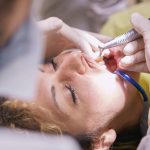
Oral cancer is a serious condition that affects many people around the globe, and early detection is key to improving outcomes. Identifying signs and symptoms at an early stage can be lifesaving. Knowing what to look for allows you to take prompt action and seek professional advice. This article walks you through common symptoms of oral cancer, aiming to help you stay informed and aware of your oral health.
Common Symptoms of Oral Cancer
Oral cancer can manifest itself through a variety of symptoms. While the presence of these symptoms does not necessarily mean you have oral cancer, being aware of them creates an important line of defense against the disease. Most noticeable symptoms may include:
-
Persistent sores on the face, neck, or mouth that bleed easily and do not heal within two weeks
-
A lump, bump, or swelling of the tissues in the mouth that is typically thickened or hard
-
White, red, or speckled patches inside the mouth
In addition to these signs, it is not uncommon for individuals to experience chronic soreness or a feeling that something is caught in the back of the throat. These feelings should not be dismissed, as they can be indicators of a more severe issue.
Difficulties in Oral Functions
As oral cancer progresses, certain functions may become challenging. These might include:
-
Persistent pain or difficulty swallowing or speaking
-
Difficulty moving the jaw or tongue
-
Changes in voice, most notably hoarseness or a change in vocal pitch
Challenges in chewing or moving the jaw and tongue can not only be a sign of oral cancer but can also significantly affect a person’s quality of life and nutritional intake.
Physical Changes and Sensations
Being attuned to the subtler changes in your body is crucial. Oral cancer may cause a range of sensations and physical changes, such as:
-
Numbness in parts of the face, mouth, or neck
-
A sudden loss of feeling or a persistent sensation of tingling
-
Persistent ear pain
If you notice any continuous unexplained numbness or pain, contacting a healthcare professional promptly for an evaluation is advisable. This is particularly important if these feelings persist with no clear cause, as they could be signs of nerve damage or growth that need immediate attention.
Visible Oral Abnormalities
Certain symptoms of oral cancer are visible and can be noticed during routine inspections of your mouth which may include:
-
Unexplained bleeding in the mouth
-
Sores on the mouth that prevent proper fitting of dentures
-
Unexpected weight loss
Many of these symptoms can potentially be noticed by dentists during routine dental checkups, which is one of the reasons regular dental visits are a vital part of oral health care.
Importance of Professional Dental Care
Seeking personalized dental care in San Jose or your local area can play a critical role in the early detection and management of oral health issues. Experienced practitioners can recognize the early signs of oral abnormalities, including cancer, and direct you toward the appropriate medical care if needed. Frequent dental visits contribute to the early detection of any changes that deserve a closer look.
At-risk Behaviors and Oral Cancer
It’s important to be aware of the risk factors associated with oral cancer. Tobacco use, heavy alcohol consumption, and exposure to the human papillomavirus (HPV) are well-known contributing factors to the development of oral cancer. It’s essential to be sincere about these habits during medical consultations for appropriate screening and advice.
Engaging in Preventive Measures
Committing to a routine of professional dental cleaning in San Jose, CA, can reduce the risk of developing oral cancer. These cleanings remove plaque and detect potential issues early on. Coupled with a reduction in at-risk behaviors, preventive dental care serves as a safeguard to your overall oral health.
When to Seek Medical Attention
If you are experiencing one or more of the symptoms described, it’s important to make an appointment with your healthcare provider. Continuous observation and noting the duration and intensity of symptoms can assist professionals in making an accurate diagnosis. Do not wait for the annual dental check-up if you have persistent symptoms; prompt action is crucial.
Managing Oral Health Post-Diagnosis
If diagnosed with oral cancer, treatment is the priority, but maintaining oral health remains essential. If you try to restore your damaged teeth with dental crowns, it can repair aesthetic and functional damage caused by the disease or its treatment, facilitating a better quality of life during and after recovery.
Conclusion
The timely recognition of oral cancer symptoms can make a critical difference in diagnosis, treatment, and prognosis. Symptoms ranging from persistent sores, difficulty with oral functions, and unexplained pain or numbness to visible changes in the mouth are key indicators. Regular dental visits contribute significantly to early detection.
Adopting preventive measures, being aware of risk behaviors, and seeking prompt medical attention upon noticing symptoms all play an essential role in confronting oral cancer. Keep informed, stay attentive to your body’s signs, and prioritize your oral health as part of your overall well-being.























































